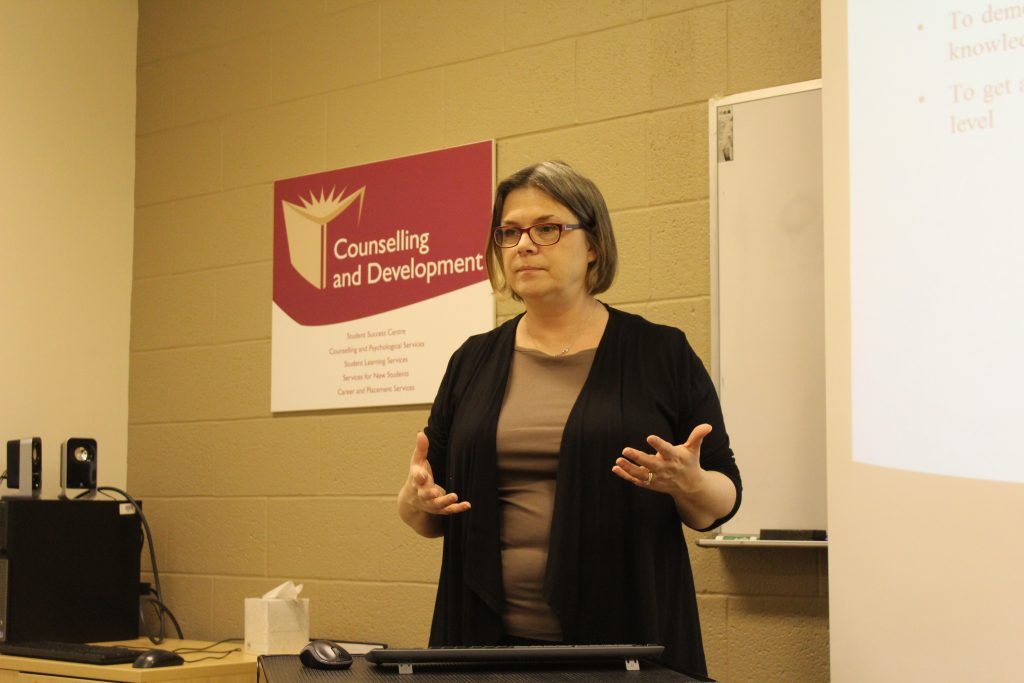Concordia’s Student Success Centre held a workshop on writing a good research paper
Concordia’s Student Success Centre held the first of five in-depth workshops on writing strategies for research papers and other academic writing on Jan 19.
This particular morning workshop, held in Concordia’s Hall building, focused on how to start academic research papers and gain an understanding of the paper’s topic.
Jennifer Banton, a learning specialist at Concordia, led a small group in an hour-and-a-half-long session on writing academic and research papers. She covered subjects such as the writing process, why universities and professors assign research papers, and multiple tactics to help improve one’s writing ability.
Banton stressed students should be aware of their audience. “The audience is not the professor,” she said. “The target audience of a research paper… is your peers. The professor reads it, but you cannot write a paper at the level of the professor—you are not targeting publication-level writing. Even in a master’s, even at your PhD, you are not at publication level. The educated peers in your class—you are writing to them and only to them.”
Banton also prioritized techniques regarding exploring the topic of a research paper. She encouraged students to try free-writing. “You start writing and let your ideas flow as if you were talking about the topic,” she explained.

Banton also offered the group a printed list of 20 specific tips for overcoming writer’s block. This included suggestions such as “rehearse what you will write by talking about your ideas before you start—write whole sections of your paper at a time so that ideas flow,” and “stop writing in the middle of a sentence before taking a break to make it easier to get started again.”
Banton said the goal of the workshop was “to get a solid overview of what to expect in writing, to get some new information, some new ideas and strategies that could radically change the way you see your studies, or an affirmation that what you’re doing is correct.” This was, however, only the first of five workshops that will attempt to accomplish this.
Four more academic workshops, paid for using Concordia student fees, will take place over the next four Thursdays from 10:15 a.m. until noon. These workshops will cover how to write a thesis statement, how to do research in a university library, proper citation to avoid plagiarism, and punctuation and grammar. Any Concordia student can head to the fourth floor of the Hall building to attend, but must first sign up online through the MyConcordia portal.




